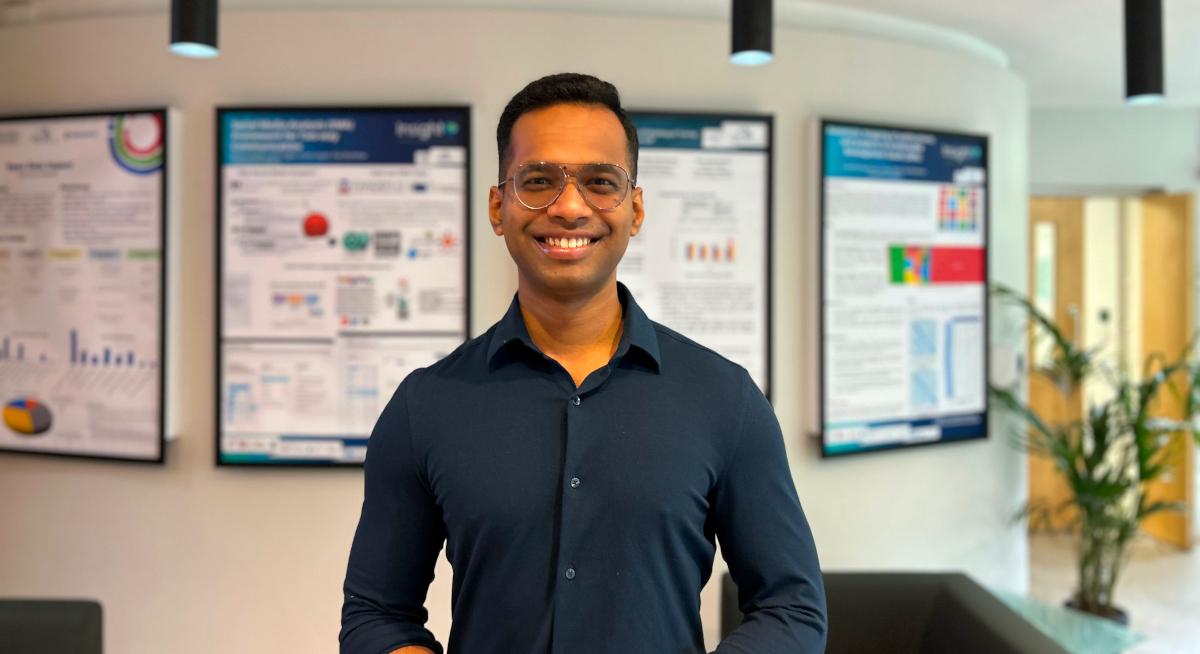
Rajdeep Sarkar of Yahoo discusses his daily life working in the deep learning and NLP space, and the two fundamental pillars one must master to excel in these areas.
For Rajdeep Sarkar, a research scientist specialising in deep learning and natural language processing (NLP), the most enjoyable part of his work is the fact that he is able to apply his mathematical and analytical knowledge to “solve real-world problems and thereby impact a large number of lives”.
Sarkar, who has a BSc and MSc in mathematics and computing from the Indian Institute of Technology in Kharagpur, works at Yahoo’s office in Dublin, where he says his primary focus lies in “addressing intricate issues within dialogue systems and text classification”.
“My journey commenced during my doctoral studies at the University of Galway, where I dedicated my research to advancing the frontier of knowledge-grounded chatbots.”
Prior to joining Yahoo, Sarkar collaborated with research wings at Huawei and Fidelity Management and Research.
‘In the rapidly evolving field of AI research, staying abreast of the latest advancements is paramount’
If there is such a thing, can you describe a typical day in the job?
My day typically starts with a soothing cup of Americano coffee, during which I meticulously plan my daily agenda for optimal productivity. This involves getting ready for important meetings, conducting knowledge transfers, training deep learning models and delving into research papers that pertain to my ongoing projects. I then diligently follow this plan throughout the day to ensure that I accomplish my tasks efficiently.
Tell us about the work you’re doing in the area of deep learning and natural language processing.
In my current role at Yahoo, I’m actively engaged in tackling text classification challenges. This intriguing work revolves around the development and training of various neural network architectures designed to categorise text content into one or multiple of several distinct categories.
What deep tech skills do you use on a daily basis? Do you have to draw on any skills in ways you didn’t expect before you were in the role?
I leverage my deep learning expertise and mathematical acumen to address intricate challenges. This multifaceted work includes crafting reusable code components, maintaining code to align with the rapidly evolving Python libraries and designing cutting-edge neural architectures tailored to the specific problems we encounter. Equally important is ensuring that these models perform as intended in a real-world production environment.
During my academic journey, deploying models in a production setting wasn’t a requirement. However, my experience at Yahoo has provided me with invaluable insights into the deployment process, where effective communication and collaboration with developers responsible for the deployment is paramount.
‘In my work, effective planning and prioritisation play a crucial role in ensuring high productivity’
What are the hardest parts of working with this natural language processing, and how do you navigate them?
One of the most thrilling aspects of working on NLP challenges is the need to stay constantly updated with the latest state-of-the-art methodologies in this ever-evolving field. With methodologies advancing at a rapid pace and groundbreaking research emerging regularly, it presents both a significant challenge and an exhilarating opportunity to incorporate these cutting-edge techniques into my projects at Yahoo. This process involves not only mastering the novel methodologies but also skillfully integrating them with domain-specific knowledge to deliver innovative solutions.
Do you have any productivity tips that help you through the day?
In my work, effective planning and prioritisation play a crucial role in ensuring high productivity. This entails dedicating focused time to tasks such as training new models, meticulous documentation, in-depth problem analysis, code debugging and staying well-informed about the most recent advancements in research. By carefully managing these aspects, I’m able to maintain a high level of efficiency and consistently deliver valuable contributions in my role.
What skills and tools are you using to communicate daily with your colleagues?
I collaborate with colleagues at Yahoo’s Dublin and California offices, and our communication channels include Slack, Google Meet and email. Despite working remotely, I find it incredibly convenient to connect with my team via Slack, which greatly enhances our workflow.
With the speed of evolution in the area of AI, how has the nature of your work changed and how have you adapted?
In the rapidly evolving field of AI research, staying abreast of the latest advancements is paramount. I make it a regular practice to immerse myself in the most recent developments by diligently reading research papers presented at esteemed conferences like the Association for Computational Linguistics and its European chapter, the Empirical Methods in Natural Language Processing conference, the International Conference on Learning Representations and more.
Furthermore, I avidly follow blogs authored by prominent researchers, which are dedicated to the domains of AI and deep learning. This commitment to continuous learning and exploration ensures that I remain at the forefront of cutting-edge innovations in the field, which is vital for my work at the intersection of technology and progress.
What advice would you give to someone who wants to work with this kind of tech?
To excel in the realm of deep learning and AI, there are two fundamental pillars one must master. The first entails gaining practical experience by actively participating in a variety of projects that centre around deep learning. This hands-on engagement nurtures an intuitive grasp of which solutions are apt for specific challenges and which are not.
The second pivotal aspect involves delving into the theoretical underpinnings of these models, allowing for a comprehensive comprehension of the intricate workings beneath the surface. By striking a balance between practical expertise and a deep understanding of the theoretical framework, one can navigate the dynamic landscape of deep learning and AI with confidence and competence.
10 things you need to know direct to your inbox every weekday. Sign up for the Daily Brief, Silicon Republic’s digest of essential sci-tech news.

